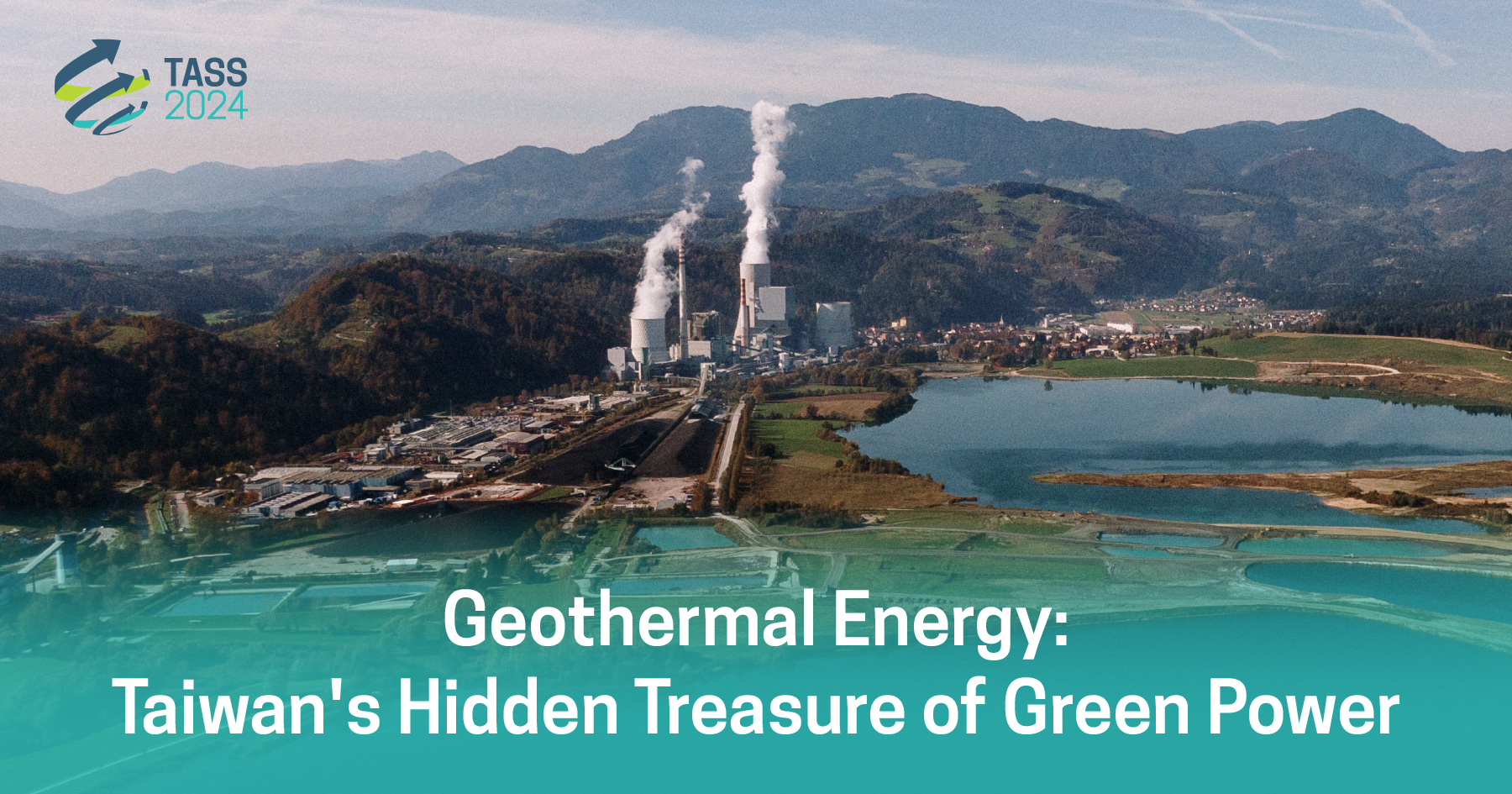
In Taiwan’s journey towards renewable energy development, wind and solar power have long been the two major forces. However, geothermal energy is gradually emerging and is expected to become the third largest source of green electricity. Geothermal power generation is one of the few energy sources that can serve as a stable base load, with a capacity factor of up to 90%, and its levelized cost of electricity is lower than that of solar and wind power. As a clean renewable energy source, geothermal energy can effectively reduce air pollution caused by power generation, improve carbon emissions, and generate economic value through multiple uses.
To promote geothermal development, the Ministry of Economic Affairs established the “The Single Service Window for Taiwan Geothermal Power” in 2022 and issued the “Geothermal Exploration and Development Permit and Guideline” in May 2024, further improving the regulatory environment for geothermal development. Drilling costs account for about 50% of geothermal development costs; therefore, most operators cooperate with foreign partners or form joint drilling teams to reduce risks. The government offers a demonstration reward program that provides up to 50% risk-sharing. This program like drilling insurance with the added benefit of interest-free loans, leveraging government guarantees to connect with green finance project funding. Several banks now provide equipment financing for geothermal plants, making investment conditions more favorable for geothermal development.
Taiwan’s first geothermal power plant was built as early as 1981, making Taiwan the 14th country globally to utilize geothermal power. However, due to insufficient geothermal exploration technology and experience, the plant eventually ceased operations because of scaling issues. Over the past five years, the Geological Survey and Mining Management Agency of the Ministry of Economic Affairs has established a geothermal exploration database and actively explored nine high-potential geothermal zones. According to the Geological Survey, Taiwan’s geothermal reserves amount to 40GW, and the government has set a goal to achieve 6GW of geothermal power generation by 2050.
The principle of geothermal power generation is based on the heat released during the decay process of radioactive elements inside the Earth. On average, the temperature increases by about 30°C for every kilometer deep into the ground. With this characteristic, geothermal power generation conditions can be met at depths of several thousand meters to 1 kilometer below the surface. Therefore, geothermal power generation uses the Earth’s internal heat to heat underground water, which produces steam to drive turbines and generate electricity. It is a renewable energy source suitable for long-term power investment, capable of replacing nuclear energy or natural gas. Rami Shavit, Director Sales, Marketing & Business Development at Ormat Technologies, the largest manufacturer of geothermal binary equipment, pointed out that geothermal energy could even help Taiwan achieve its 2050 net-zero emissions goal.
CPC Corporation, Taiwan also has significant plans in the field of geothermal power. Chairman Shun-Chin Lee stated that hydrogen and geothermal energy are the two main pillars of CPC’s green energy development. The Renze geothermal power plant in Yilan was officially launched last year (2023), with the Yilan Tuchang 4MW site is expected to come online this year, with a 5MW addition scheduled for next year. In addition to shallow geothermal energy, CPC is also introducing deep drilling technology, aiming to explore deep geothermal resources at depths of 3 kilometers below the surface. Currently, CPC is cooperating with Academia Sinica, with plans to build Taiwan’s first deep geothermal plant in Yilan by 2030, with specific locations still under planning.
Sources: Economic Daily News, Global Views Monthly, Energy Administration Ministry of Economic Affairs, ChinaTimes, Sinopac Bank, Materialsnet
With Taiwan’s extensive geothermal resources, geothermal power generation is set to become a key force in driving the energy transition. At TASS2024, geothermal energy will be a major focus, with discussions centered on maximizing the development and application of these resources. This presents significant opportunities for industry collaboration, as stakeholders unite to propel Taiwan toward a sustainable, low-carbon future.

